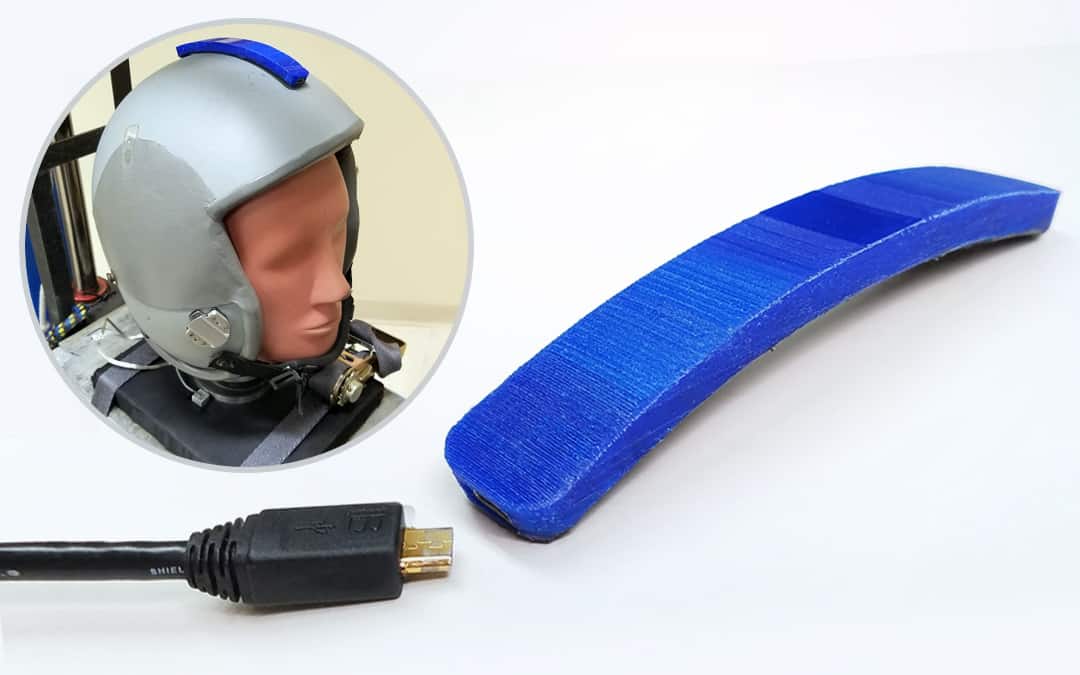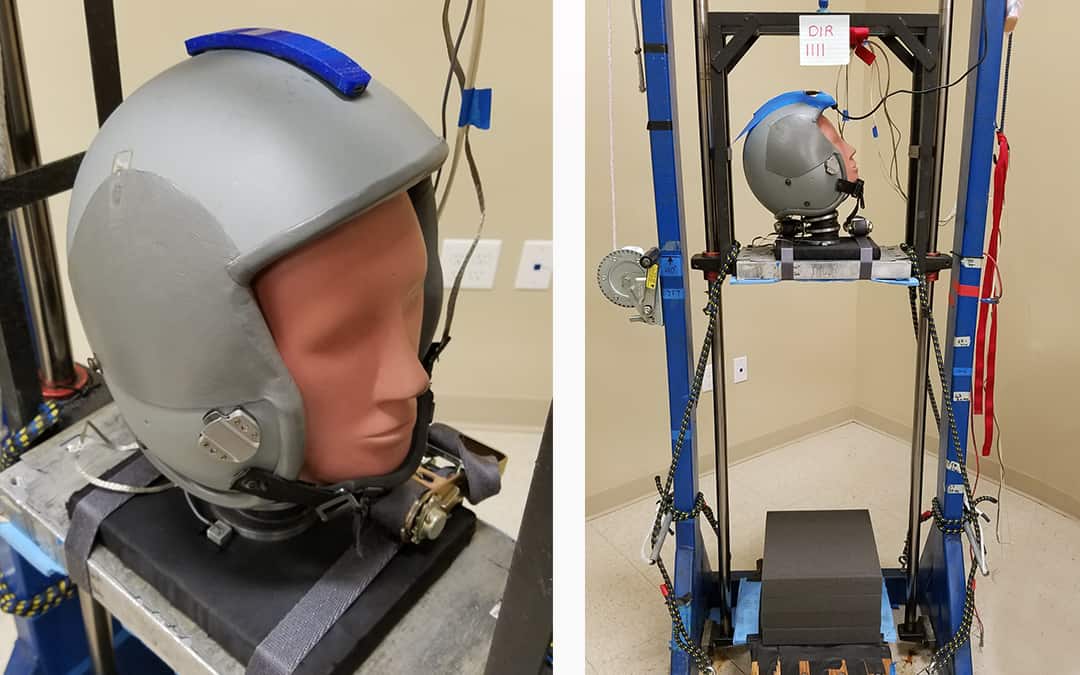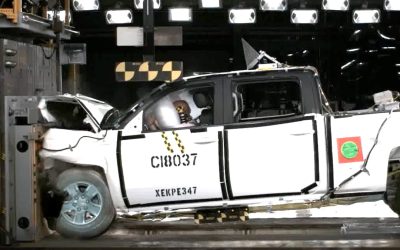When Air Force pilots are forced to eject, they experience tremendous forces and physical stresses. During an ejection event pilots are hit with a gravitational force 14-16 times greater than normal. This puts them at serious risk of injuries including spinal damage, broken bones, as well as head and neck injuries. To help improve pilot safety, DTS is in the process of developing an innovative Dynamic Impact Recorder (DIR) that will gather data that can then be used to develop more effective protective gear including seating and restraints.
The concept and development of this new miniature dynamic impact recorder has come about as the result of a Small Business Innovation Research Award given to DTS to help advance pilot safety for the United States Air Force.
The New Dynamic Impact Recorder – Small Enough to Fit in Helmet
This new recorder will have the capacity to collect acceleration, force and angular velocity measurements, that a fighter pilot may experience during an emergency ejection event. One big obstacle is to create a design that allows the sensors and data recorder to be placed as close to the points of interest (such as the head) as possible – without limiting typical movements a pilot must perform in the course of a flight or unanticipated event. This DIR will be small enough to embed in a helmet and have an enclosure that is rugged enough to withstand the forces of flight and ejections.
The big challenge for DTS design engineers is size, mass and center-of-gravity (CoG). The technology needs the capacity to accurately gather field data with human subjects in extreme environments, without altering test dynamics. DTS’ ultra-low power designs are significantly smaller and lighter than similar systems on the market and the new unit will feature six degree of freedom (6DOF) sensing and onboard memory so all data will be stored in place to non-volatile memory.
DTS has been awarded numerous Small Business Innovation Research contracts, both Phase 1 and Phase 2 awards. Phase 1 is the conceptual phase and we are now in Phase 2, working toward a final design that will contribute to improving Air Force pilot safety.
DTS has 30 years of experience developing innovative data recorders and sensors used around the world for safety testing in aerospace, military, and automobile industries. For more information about the awards and the dynamic impact recorder, go to DTS Awarded SBIR Contracts to Advance US Sir Force and NASA Flight Crew Safety.
The miniature Dynamic Impact Recorder DTS is developing for the U.S. Air Force will measure forces that pilots may experience during an emergency ejection maneuver. The unit (shown as a prototype on the helmet) will collect data used to improve safety gear for USAF pilots.
Related Articles
NASA Spinoff – Better Data for Bodies in Motion
DTSA wearable device to monitor astronauts’ tumultuous return to Earth is helping industry
Euro NCAP revealed its Best in Class cars – Safest Models 2024
DTS DAQ & sensors are used worldwide to support a variety of NCAP regulation testing, including our SLICE6 in-dummy DAS solutions for occupant safety testing.
GM is Boldly Aiming for a World with Zero Crashes
General Motors (GM) has a bold vision for the future – a world with zero crashes, zero emissions and zero congestion
SUBSCRIBE FOR DTS NEWS & UPDATES
YES! Sign me up






